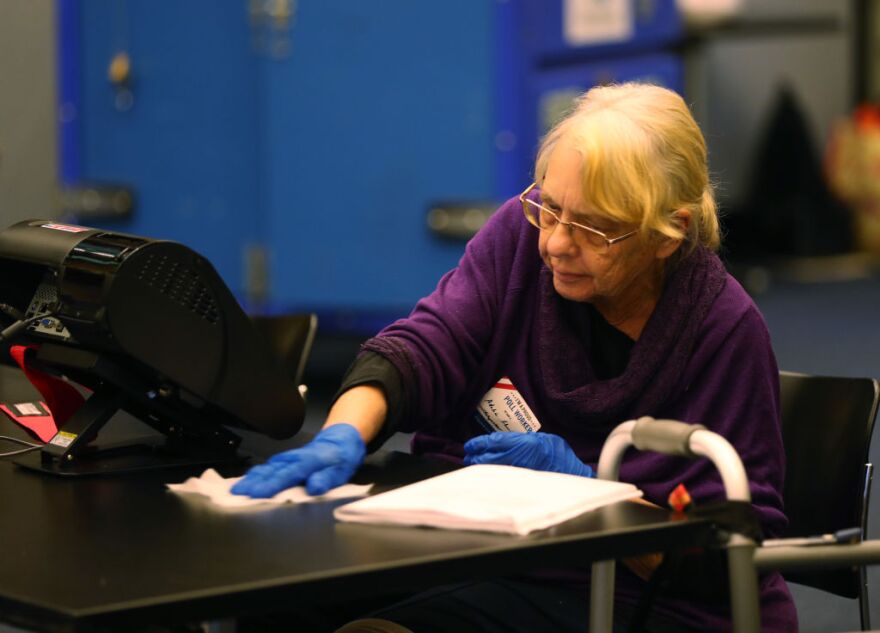Updated Friday at 6:49 p.m. CT
For almost three hours Wednesday, the Wisconsin Election Commission (WEC) debated over the future of the state's April 7 elections. In the end, the commission decided to move forward with the election as planned, and urgently requested that Gov. Tony Evers' administration pay for hand sanitizer and other resources for clerks and polling places.
WEC met via teleconference to comply with Evers’ ban on gatherings of 10 or more. More than 200 people dialed in, eager to hear what the commission had to say.
In recent days, elections officials in various states have decided to postpone their presidential primaries to try to prevent the risk of spreading coronavirus, which causes COVID-19. As of Wednesday evening, five states had postponed their presidential primary elections: Georgia, Kentucky, Louisiana, Maryland and Ohio. Such actions raised the question of whether Wisconsin should proceed with its April elections.
>>The Latest WUWM & NPR Coronavirus Coverage
>>Wisconsin 2020 Answers Your Questions About Coronavirus & The April 7 Election
During the call, many commissioners said the situation is a bit more complicated in Wisconsin.
On April 7, residents will not only be voting in the presidential primary, but will also be voting for important local races, as noted by commissioner Dean Knudson.
“Everything from local mayors, city councils, other town and village elected officials, all the way up to our judges, they’re all being elected on April seventh or at least many of them are," he said. "And the way our statutes run, there would be vacancies if we did not hold this election.”
In the Milwaukee area, races include Milwaukee Mayor and Milwaukee County Executive.
The concern many commissioners had was the ripple effect from postponing the elections. It would mean vacancies in key public offices in the time of a public health crisis.
So, while the April 7 elections are still on, WEC is taking precautions. The commission passed a motion Wednesday evening directing staff to develop best practices to minimize the potential transmission of the coronavirus at the polls.
On Friday, the elections commission sent a letter to Evers asking for immediate support to help local election officials procure sanitation materials and recruit poll workers.
“As of today, local election officials do not have access to the people or supplies needed,” wrote Wisconsin Election Commission Administrator Meagan Wolfe. “This leaves voters, clerks, and poll workers to make difficult choices. Voters should not have to choose between voting or staying healthy. Poll workers should not have to choose between serving their community or staying healthy. Our local election officials should not have to choose between facilitating democracy or staying healthy.”
She said local clerks aren’t able to find the hand sanitizer and surface cleaning materials needed to comply with CDC guidance to limit transmission of the coronavirus. She asks Evers to allocate sanitation resources to local election officials so they can protect their health and voters’ health as much as possible.
Wolfe requested Evers’ assistance in recruiting poll workers as well. In previous elections, she says half of poll workers were over the age considered most at risk for COVID-19 complications, and many have indicated that they cannot serve.
As a way to reduce in-person contact, election officials encourage Wisconsin residents to vote absentee by mail.
>>How To Request An Absentee Ballot
Wolfe stated in a memo that clerks statewide are facing unprecedented pressure: "With the push to encourage absentee voting from various sources, clerks in many communities do not have enough absentee certificate envelopes for voters to use when returning their absentee ballot, and in some cases are using envelopes intended for the fall elections."
The commission authorized Wolfe to spend up to $200,000 on additional supplies needed for absentee voting, such as envelopes, labels and sanitation supplies.







